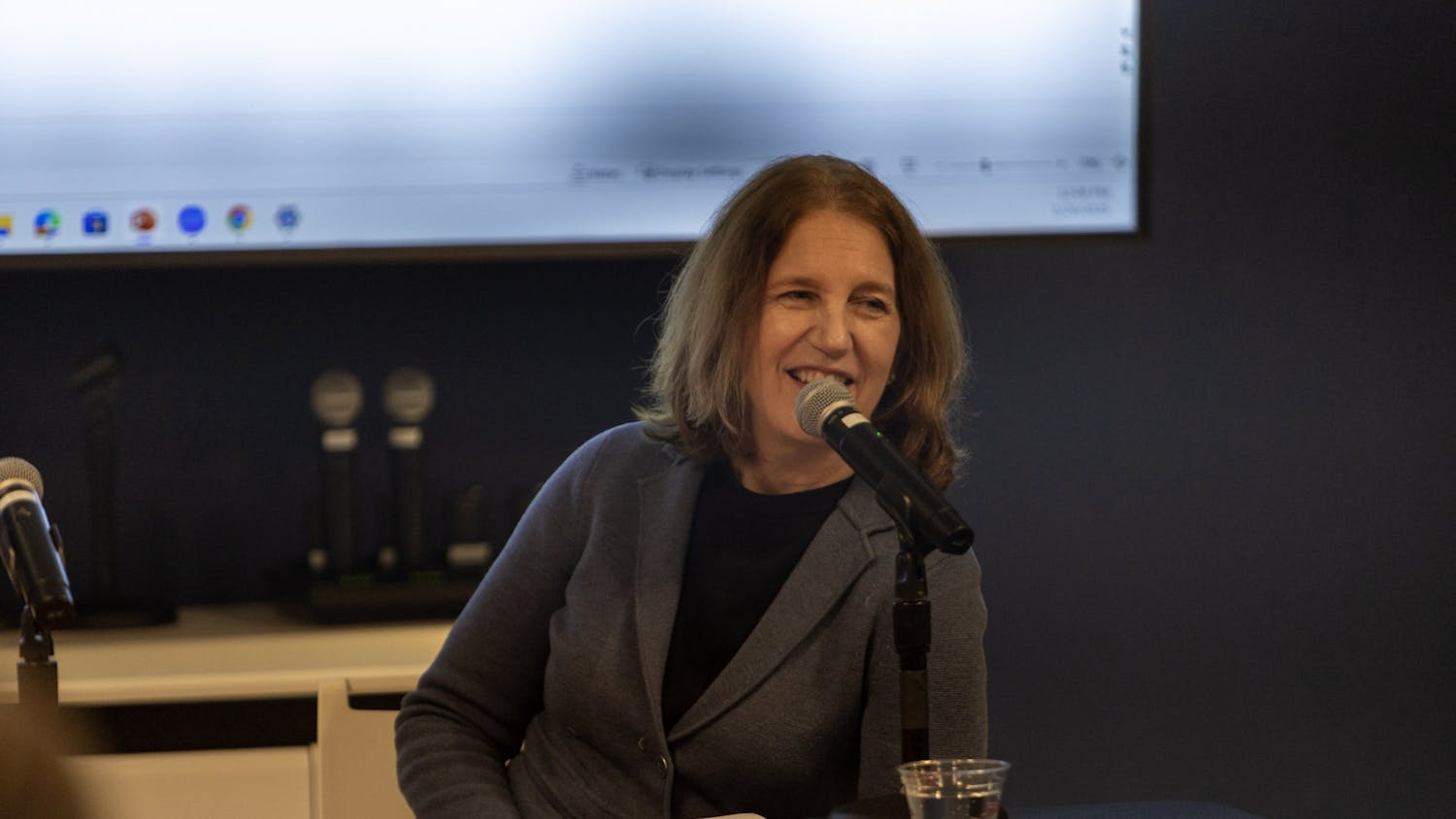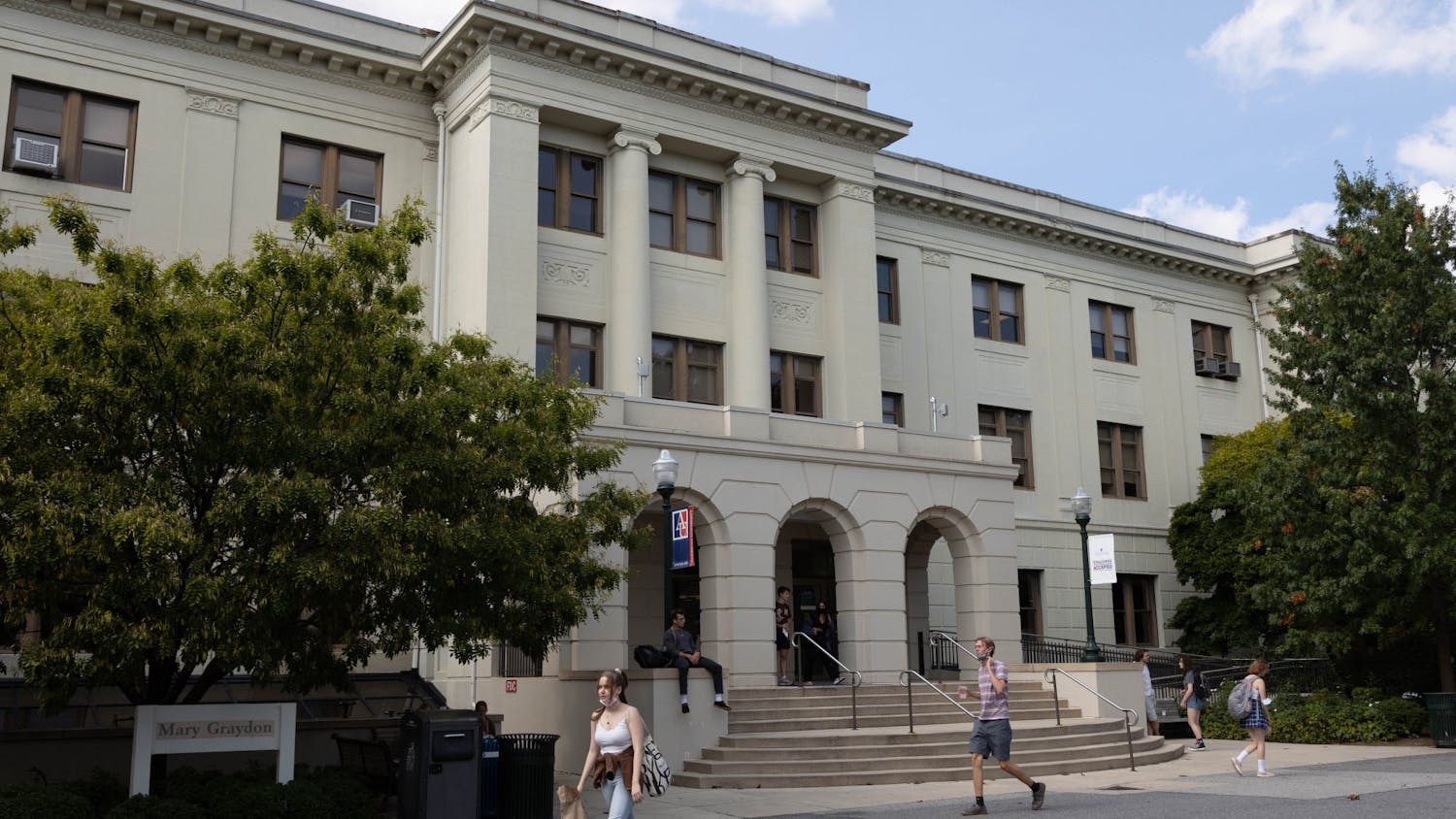The Foundation for Individual Rights in Education ranks AU as a "red light institution" for administrative censorship, FIRE President and AU alumnus Greg Lukianoff said during a Kennedy Political Union and Students for Liberty event Thursday night.
FIRE ranks universities on a red, yellow and green light scale based on threats to free academic thought found in university policies, according to FIRE's Web site. The foundation also takes action against such universities both in and out of court to have those policies revoked, Lukianoff explained.
Red-light institutions are the "worst of the worst," and characteristically display "a severe and ongoing disregard for the fundamental rights of their students or faculty members," according to an online explanation of the ranking. They are the universities that FIRE determines to have at least one clear and substantial restriction to freedom of speech.
Seventy-five percent of the 346 schools FIRE has reviewed received a red light ranking; 21 percent received yellow light ratings, while 2 percent earned green light ratings, according to a 2007 study from FIRE.
FIRE has brought cases before universities and through the courts with great success, according to Lukianoff. He estimated that the repeals that have resulted from FIRE's actions affect an aggregate university population in the millions, Lukianoff said.
Despite legal successes, there has been a rise in the number of cases in recent years, which represents an enduring ideology, Lukianoff said.
"You can't ban hate speech, and fighting that perception is a long road," he said.
Lukianoff claimed that harmful speech should not be dealt with by a governments or bureaucratic bodies like university administrations and said such speech is properly dealt with on a micro-social level.
One audience member voiced concern that eliminating speech codes, while helpful to "good and proper people," would benefit people with harmful intentions.
"I have no problem defending legitimately harmful speech," Lukianoff said in response.
Lukianoff used specific examples from other red light universities - including Northeastern University, Brandeis University and the University of Delaware - to exemplify how bureaucracies can limit dissent and infringe on basic speech rights.
FIRE takes issue with how broad AU's policies are on general harassment, protected group harassment and sexual harassment, according to the profile the foundation maintains on its Web site.
The fact AU considers slurs, jokes, unwanted brushes or touches to be examples of harassment incidents is a constitutional violation, according to Lukianoff. They go beyond the definition of harassment as severe, pervasive and persistent conduct that interferes with a student's education as determined by a Supreme Court case, he said.
FIRE does not cite any published limitations. AU mandates in the student handbook that the examples it gives of possible incidents of harassment must be "sufficiently severe, pervasive or persistent so as to interfere with or limit the ability of an individual or group from participating in or benefiting from the services, activities or privileges afforded to members of the university community."
Additionally, harassment at AU must fit into at least one of three circumstances according to the handbook. First, one's actions have the purpose or result of unreasonably interfering with another's work or academics. Second, they are used as a condition or base for employment or academic advancement. Or finally, they create an intimidating or offensive work or learning environment.
The last time Lukianoff and FIRE became directly involved with AU was in 2002, according to FIRE's profile on the university. The organization secured legal representation for a student accused of "possession of stolen property" for videotaping an on-campus speech by Tipper Gore. The incident received national attention, but FIRE did not publish anything on the outcome of the case.
You can reach this writer at news@theeagleonline.com.




